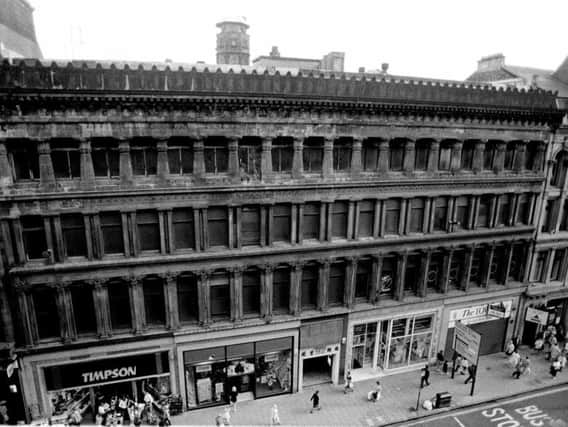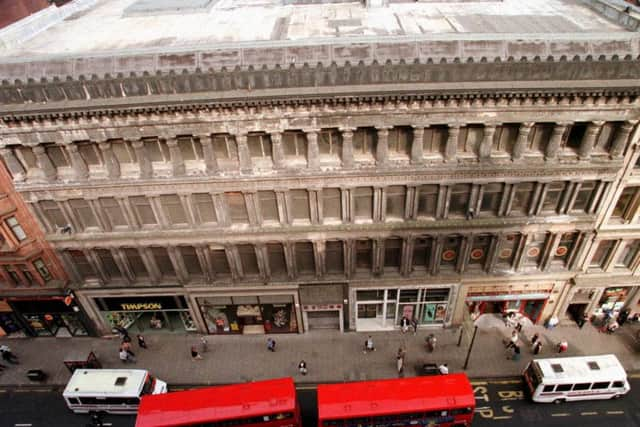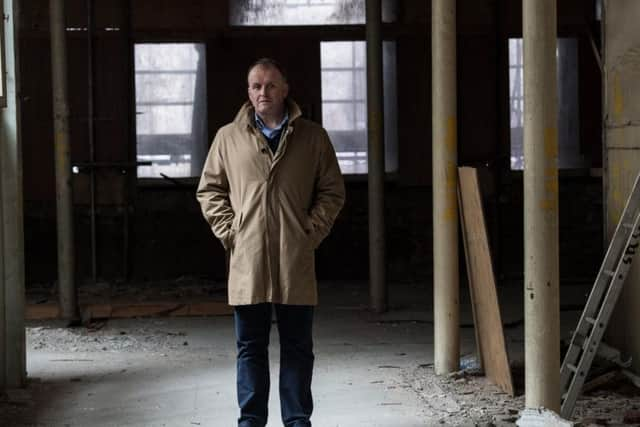Glasgow's Egyptian Halls masterpiece named as one of Europe's most endangered buildings


The upper floors of the former warehouse on Union Street have now been empty for 40 years, and shrouded by scaffold for the last 10, with the building now falling into serious decay.
The building has now been shortlisted by the pan-European heritage organisation, Europa Nostra, for its 7 Most Endangered programme.
Advertisement
Hide AdAdvertisement
Hide AdThere are 14 properties on the shortlist, which includes The National Theatre of Albania and Castle Jezeří in the Czech Republic, with the 7 Most Endangered to be announced in March 2020.


A statement form the Alexander Thomson Trust said: "The building has already served as an exhibition hall, a marketplace, offices, a music venue and a restaurant, demonstrating its potential and its flexibility.
"What it now needs is the public to demonstrate its support for the restoration and reuse of this architectural marvel, and to encourage those with the power to do so, to act now and save Egyptian Halls."
The Alexander Thomson Society and the Society for the Protection of Ancient Buildings collaborated on the application to have Egyptian Halls shortlisted by Europa Nostra with the understanding that the window to save one of Glasgow’s most significant buildings is rapidly closing.


The aim is to work with the owners, local authority and government to try and identify a sustainable route to bring the building back into use.
The two societies have until March to make the case for the Thomson building to be chosen by the board of Europa Nostra for support.
The announcement follows on from the recent Reimagining Egyptian Halls competition and exhibition organised by the Alexander Thomson Society to begin examining alternative uses for the site
. Entries explored a wide variety of uses include as an art gallery, museum, community centre or school. These entries will now be showcased on the Alexander Thomson Society website where the public will have their chance to select their favourite, as well as contribute to the discussion about what the future of Egyptian Halls might be.
Advertisement
Hide AdAdvertisement
Hide AdIn July, the owner of the Egyptian Halls said he wants to put years of stalled deals and disputes behind him and thrash out a future for the building.
Derek Souter’s said repairs to the Egyptian Halls would amount to at least £10 million, but potentially rising to £30m.
He and his partners have planning approval and listed building consent to create a 114-bed four-star hotel on the site.
The £50 million development would link the Egyptian Halls to another architectural gem – the Lighthouse, which was designed by another world famous Glaswegian, Charles Rennie Mackintosh.
Mr Souter's companies took over the building in 1999 after Glasgow City Council imposed a compulsory purchase order in 1996.
Legal issues have slowed down the project with more financing now required to bring the building back into use. Meanwhile, property values have fallen in Glasgow City Council with no progress made at the site.
